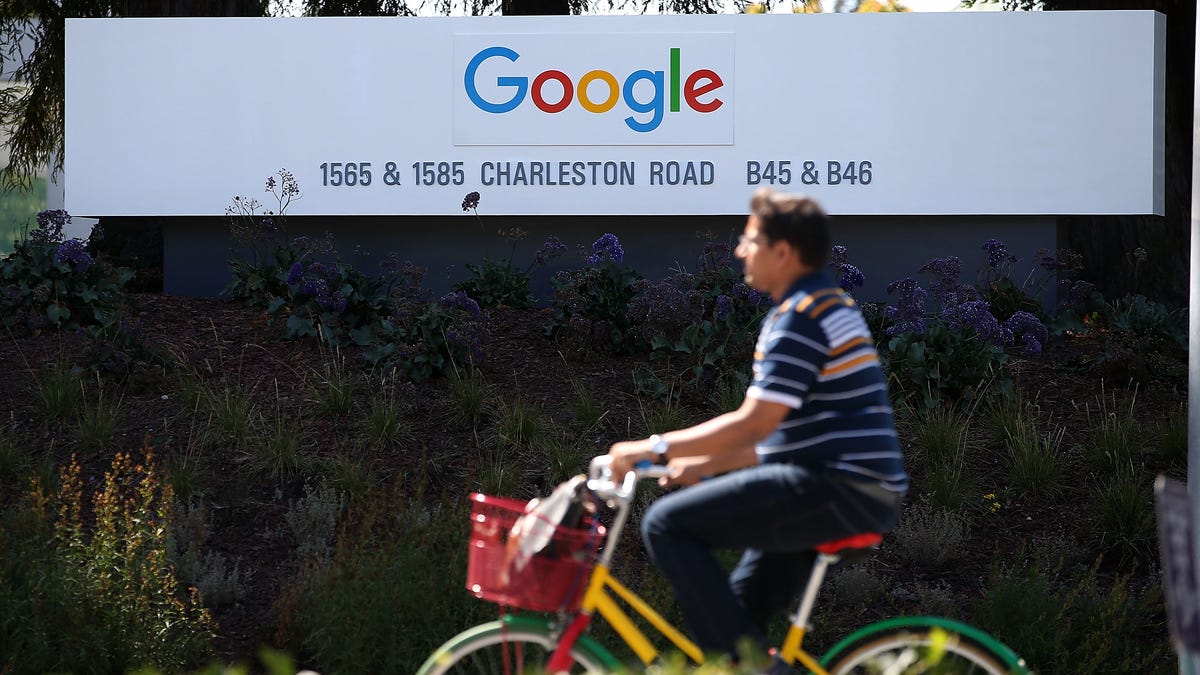Google's harder look at moon shots seems to be paying off
The search giant has shut down or scaled back some of its most ambitious projects. But its other wild bets are starting to make more money.

Google has been scaling back on some of its moon shots.
In the past few years, Google has become known for more than just its iconic search engine. You know, the one that tells you at a moment's notice the population of San Diego or what movie won the best picture Oscar in 1952 (1.3 million and "An American in Paris," respectively).
It's also become known for its Jetson's-like ambitions: cars shuttling people around sans human drivers, high-flying balloons that beam Wi-Fi to remote regions, and nanoparticles that aim to detect cancer in early stages.
When you describe something as "googley" in Silicon Valley, people know what you mean -- whimsical, scientific and with a dash of free food.
It looks like some of those moon shots, called "Other Bets" in Google parlance, are starting to pay off. Google's parent company, Alphabet, said Thursday that, as a whole, those bets made $260 million in sales in the fourth quarter, compared to $150 million the year before. The costs associated with those bets also fell: The company spent $1.08 billion on Other Bets in the fourth quarter, versus $1.21 billion in the same period the year before.
Alphabet also gave us a snapshot of how its business is doing overall. In the three months ended December 31, it recorded $26.06 billion in sales, surpassing analyst forecasts of $25.22 billion.
Profit, after some costs, was $9.36 a share, falling short of analyst expectations of $9.67 per share.
"We're seeing great momentum in Google's newer investment areas and ongoing strong progress in Other Bets," Ruth Porat, Alphabet's CFO, said in a statement.
Moon shots downed
In the last few months, Google has stepped up scrutiny of its moon shots, with some of them shut down or scaled back. There are a few reasons for that. Failure comes with the territory. Astro Teller, who runs the X lab, the self-described moon shot factory that develops most of the company's secretive projects, touts a now-cliched mantra: "Fail fast."
"We work hard at X to make it safe to fail," Teller said during a keynote speech at South by Southwest last year. "We killed over 100 investigations last year alone."
Another likely reason is Porat, chief money minder. A Morgan Stanley veteran, she arrived in March 2015 to great fanfare. "Ruthless Ruth," as she's reportedly called among Google's rank and file, is apparently notorious for cutting projects deemed too expensive or that haven't captured the excitement of Alphabet CEO Larry Page.
"The internal transparency we've provided to our business leaders across the Other Bets and Google is helping us to allocate resources more thoughtfully across the opportunities that we see," Porat said during a conference call with analysts Thursday.
It's hard to argue with her calls. After her first earnings report on the job, Google's market value swelled by $60 billion the next day, the biggest one-day gain for any company in history.
But while that's no doubt tickled Wall Street, it's come at the expense of some of those pie-in-the-sky, dare-to-dream projects.
Among some of the scaled-back efforts: the robotics division. It was started by Android creator Andy Rubin, who built it up thanks to an acquisition spree that included at least 11 companies in 2013. But after Rubin left Google in 2014, the effort was rudderless. The robotics division was eventually swallowed up by X, before Teller disbanded it and instead organized teams around specific problems and projects in which robotics could play a part.
The company also decided to halt expansion of its high-speed internet service, called Fiber, though it will continue operations in eight cities where it's already in place. Google also scaled back its efforts with drones and is now mostly focusing on trying to use them as a delivery service for things like pizza and groceries instead of for spreading internet connectivity.
"As we reach for moon shots that will have a big impact in the longer-term, it's inevitable that there will be course corrections along the way," Porat said in October. "Some efforts will be more successful than others."
Update, January 30, 2:33 p.m. PT: Adds more information regarding Google's robotics division.
CNET Magazine: Check out a sampling of the stories you'll find in CNET's newsstand edition.
Life, disrupted: In Europe, millions of refugees are still searching for a safe place to settle. Tech should be part of the solution. But is it? CNET investigates.

